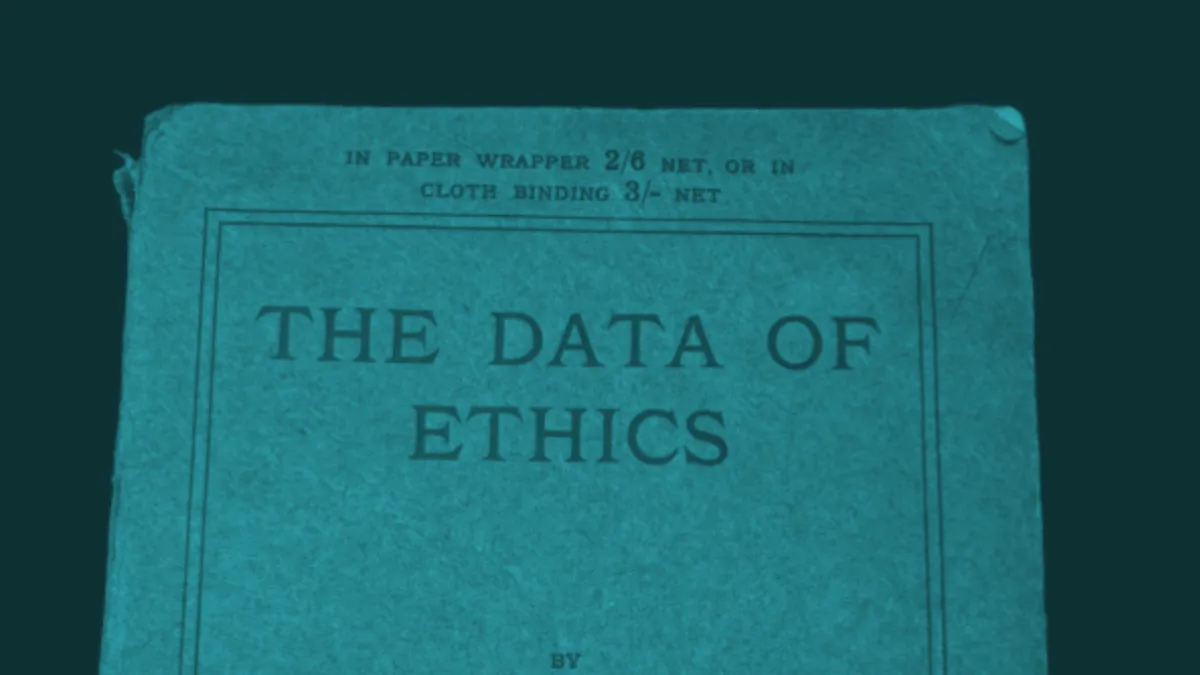
AI Can Make Ethical Decisions.

There’s a growing belief floating around—especially as AI becomes more advanced—that it can make ethical decisions. People say things like, “AI will be fairer than people,” or “It can remove emotion from the decision-making process.”
And yes, AI can help us be more consistent. It can even flag patterns that seem unfair or dangerous. But let’s get one thing straight:
AI doesn’t know what ethics are.
It doesn’t have values.
It doesn’t choose to do the right thing.
It follows rules. It reflects patterns. And it only “acts ethically” when humans have built ethical reasoning into its framework.
Where the Confusion Comes From
We tend to think that since AI doesn’t get angry, jealous, or biased like people do, it might make better decisions. And in certain areas—like speeding up processes or removing obvious inconsistencies—that’s true.
But making an ethical decision requires:
Understanding consequences
Balancing competing values
Considering cultural norms
Exercising judgment based on context
These are not things AI can do on its own. Not now, and not any time soon.
What AI Can Do
Let’s be fair—AI can support ethical decision-making, if:
It’s trained on examples of past ethical decisions
It has clearly defined guidelines or constraints
It’s used in situations with measurable outcomes (e.g., reducing wait times or balancing workloads)
In other words, it can simulate ethical behavior in narrow, well-defined circumstances.
But when the stakes are high—like who gets a loan, who gets bail, who gets hired, or how sensitive information is handled—AI shouldn’t be left to decide.
Real-World Examples of AI “Ethics Gone Wrong”
Hiring tools: An AI trained on historical hiring data began filtering out women for technical roles—not because it wanted to, but because the data showed a male-dominated pattern.
Medical decision-making: An algorithm used to allocate healthcare resources gave lower risk scores to Black patients due to historical disparities in healthcare access—not intentional bias, but bias baked into the training data.
Content moderation: Social platforms using AI to detect hate speech have shown higher false positives for certain dialects or slang, disproportionately silencing minority voices.
These examples aren’t proof that AI is evil.
They’re proof that ethics doesn’t emerge from algorithms—it’s designed (or overlooked) by humans.
What Ethics Requires (That AI Doesn’t Have)
Context Awareness
Ethics is deeply tied to context. What’s fair in one situation may not be in another. AI struggles with nuance.
Empathy
Understanding how decisions affect people emotionally or socially is critical. AI doesn’t feel.
Judgment
Ethical decisions often involve trade-offs. AI isn’t capable of weighing competing values unless those values are explicitly programmed in.
Accountability
Humans can be held responsible. AI can’t be blamed. If something goes wrong, someone still has to answer for it.
Adaptability
Ethical norms evolve. AI doesn’t evolve with them unless humans update its parameters.
Why This Matters for Business
If you’re using AI to screen applicants, manage customer relationships, or allocate resources, here’s why this matters:
You’re still responsible: If AI makes an unethical decision, the fallout lands on your business, not the algorithm.
Reputation risk is real: Biased or insensitive outputs can go viral quickly, damaging trust.
Ethics = customer loyalty: Today’s customers care about how companies treat people. Delegating ethical decisions to AI without oversight signals a lack of care.
Legal compliance: Many jurisdictions are creating laws around AI bias, discrimination, and transparency. “The AI did it” won’t hold up in court.
So How Do You Use AI Responsibly?
Use AI for suggestions, not final decisions
Let it offer options or highlight patterns—but keep a human in the loop to make judgment calls.
Audit regularly
Test outputs for fairness, accuracy, and unintended consequences. Use third-party audits when needed.
Set boundaries and constraints
Define what the AI can’t do. Limit access to sensitive data. Avoid automating moral or legal decisions.
Design for transparency
Choose tools that explain how decisions are made. Make sure users can appeal or override AI-generated outcomes.
Include diverse voices
Ethics isn’t universal. Culture, identity, and experience shape it. Involve people from different backgrounds when training and testing AI.
AI Doesn’t Make Ethical Decisions—You Do
Let’s stop expecting AI to be a moral compass. It’s not. It’s a system that follows patterns and instructions.
But that’s not a reason to fear it.
It’s a reason to guide it.
You can build ethical systems with AI as a tool—but only if humans stay involved in the process.
Because “doing the right thing” doesn’t come from code.
It comes from people.
